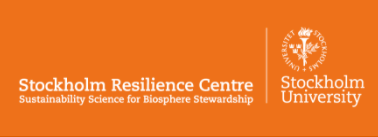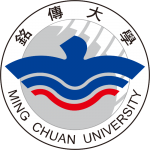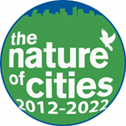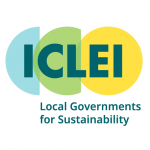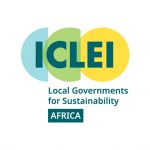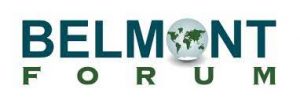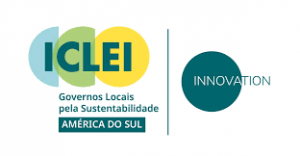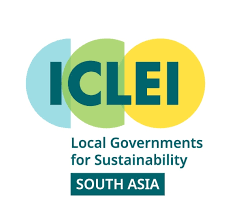What is IFWEN?
IFWEN is a Belmont Forum funded international team of researchers and stakeholders working to advance knowledge about urban governance related to food, water, and energy nexus (FWEN) connections in cities, and Green and Blue Infrastructure (GBI) as its base. IFWEN stands for: Understanding Innovative Initiatives for Governing Food, Water, and Energy Nexus in Cities.
Improved governance of the interactions between food, water, and energy in cities can provide significant benefits in addressing some of the most complex global problems, including climate change and biodiversity loss, as well as help achieve other developmental goals such as food security and health.
This team of researchers, practitioners and creative professionals worked together from 2018-2021 to advance knowledge about urban governance at different levels related to the FWE nexus (FWEN) using Green and Blue Infrastructure (GBI), by developing new concepts and approaches to understand how to assess, govern and build GBI solutions and policies.
The project developed a framework, and tools to assess changes in FWEN, for cities that highlight trade-offs and promotes building innovative capabilities in cities for building better solutions. The project also visualized and created creative experiences around the data produced to help promote, explain, and advocate for FWEN interconnections in cities.
This website hosts the collection of resources that resulted from the project.
Thank you kindly to the Belmont Forum, JPI Urban Europe, European Commission and the Sustainable Urbanisation Global Initiative (SUGI), NSF, FAPESP, FORMAS, START, MOST, BMBF, and Future Earth for financially supporting the IFWEN International Research-Innovation Project.
What is the FWEN concept?

Innovation
In the 21st Century, innovation has become THE buzz word in every policy and management forum, and a main or complementary research topic in almost every discipline. Innovation is the generation of new ideas, services, systems and processes. It is a broad and flexible enough concept that anyone can relate to positively. However, implementing new or innovative approaches in institutional contexts is easier said than done, as people naturally resist change, especially when innovation requires changing behavior.
Innovation is important for sustainability as new ideas foster better solutions and improvements in existing systems. There have already been many technological innovations for sustainability, such as the development of renewable energy technologies. However, achieving sustainable development will also require many social innovations, where communities and institutions find new creative solutions to social and environmental challenges.

Food
In the urban FWE nexus approach, we address food, water and energy resources from a systemic point of view to understand and manage their interrelations, securing access and efficiency in their provision to urban populations. “FOOD” is analyzed within the framework of “food security”, broadly defined by the United Nations´ Food and Agriculture Organization (FAO, 2002) as “[…] a situation that exists when all people, at all times, have physical, social and economic access to sufficient, safe and nutritious food that meets their dietary needs and food preferences for an active and healthy life”. Food as a land resource is usually addressed by research and management from health, nutrition, logistics and even cultural angles. As an interdependent element of the urban nexus system, its multidimensional performance is analyzed by scholarship from different perspectives across disciplines such as sociology, economy, ecology, etc., since the mid-2000s (Zhang et al., 2018). Most modern cities do not produce food within their territories, extending their demand between boundaries in all scales. Food can be imported from neighboring cities and even distant countries, impacting resources elsewhere, increasing distribution costs, carbon and ecological footprints. And while nutrition is an issue that includes contradictory health consequences, such as obesity and stunted growth, food waste continues to be huge, even in developing countries, due to poor management and distribution failure. An integrated approach such as the FWEN could help reduce these consequences.

Water
Water is the source of all life on the Planet. In cities water carries benefits that are usually taken for granted by most people. We only become aware of its importance when we lose access to supply or face shortages. The relationship between water-energy-land resources and their respective policies can be explained briefly. Water policies, for example, are commonly based only on water analysis (elaborated and regulated by a specific agency) and they might have adverse unforeseen effects specially on energy and land resources and the climate. The same happens to energy/land resources, where policies are also based only on analysis of energy/land issues. Since the current policies are based on existing models that usually focus on one resource and ignore interconnections with other resources, better methods and models that consider all the interlinkages among water, energy and land are needed. Thus, a water-energy-food nexus approach that considers both the physical and the economic implications of different policy strategies could be a major opportunity for integrated solutions that respond to the interdependencies of water, energy, food and economic systems (IISD, 2013).

Energy
Energy is arguably the main pillar of our civilization and urban lifestyle. It fuels progress, well being and growth. Since our societies have become aware about the massive scale of negative impacts resulting from our fossil fuel-based energy consumption, shifting to renewable and new sources became imperative to protect life on Earth. Examining power generation and consumption in light of the FWEN nexus shows the urgent need for an integrated approach. Assessments of land use, energy and water are often carried out in isolation by disconnected institutions. An institution focusing on water resources, for example, is likely to consider food and energy systems as end users. Similarly, agricultural assessments might see energy and water as resources, and the energy sector is likely to treat biomass (waste) and water (rivers) Energy is arguably the main pilar of our civilization and urban lifestyle. It fuels progress, wellbeing and growth. Since our societies have become aware about the massive scale of negative impacts resulting from our fossil fuel-based energy consumption, shifting to renewable and new sources became an imperative to protect life on Earth. Examining power generation and consumption in light of the FWE nexus shows the urgent need for an integrated approach. Assessments of land use, energy and water are often carried out in isolation by disconnected institutions. An institution focusing on water resources, for example, is likely to consider food and energy systems as end users. Similarly, agricultural assessments might see energy and water as resources, and the energy sector is likely to treat biomass (waste) and water (rivers) as inputs. Thus, promoting renewable energy (allocated or not in urban areas) through the current sector-driven approach, disregarding indirect transboundary impacts on land and water resources and GHG emissions, could counteract the so-desired sustainable development of cities and the fight against climate change.
Project Resources
Talks
Chung, W-C. and Shih, W-Y. (2021) Benefits and Challenges of Urban Gardens in Densely Developed Cities: a Case Study of Taipei Garden City Programme, International Consortium of Landscape and Ecological Engineering, Taipei, Taiwan, Nov 2021
Shih, W-Y. (08/2021) “How were innovative outcomes formed in the Taipei Garden City programme?”, Delivered at the Innovative Governance of Food-Water-Energy Nexus in Cities-An IFWEN Training Programme, ICLEI.
Shih, W-Y. (09/2020) “Assessing the Role of Green Infrastructure in Underpinning Urban Nexus for Climate Change Adaptation (評估綠色基盤在支持都市鏈結以調適氣候變遷的角色)”, Delivered at the Kick-off Meeting of Sustainable Discipline, Ministry of Science and Technology, Taipei, Taiwan. (In Chinese)
Hellmer, E. (12/2019) Edible Urban Greenspace: Addressing Food, Water and Energy Issues in Cities, Delivered at Graduate institute of Humanity in Medicine, Taipei Medical University.
Shih, W-Y. and Ahmad, S. (09/2018). Spatial inequality? The influence of green infrastructure on electricity consumption in Taipei’s urban neighbourhoods, Global Land Programme 2018 Asia Conference, Taipei, Taiwan. Sep 2018
Publications
Valente de Macedo, L. S., Picavet, M. E. B., Puppim de Oliveira, J. A., Shih, W-Y. (2021). Urban green and blue Infrastructure: a critical analysis of the research on middle-income countries in the global south. Journal of Cleaner Production. Elsevier.
Shih, W-Y. (submitted). Inequality in Heat Adaptation Benefits from Green Infrastructure in a Subtropical City Context.
Mabon, L., Shih, W-Y., Jou, S-C. (submitted) Integration of knowledge systems in green infrastructure initiatives: insight from Taipei Garden City.
Shih, W-Y. and Hellmer, E. (in preparation) A Lens on Food-Water-Energy Nexus of Edible Greenspaces in a Dense City.
Simon, David, Julie Goodness, Shuaib Lwasa, José Antônio Puppim de Oliveira, Laura V. Macedo, Jess Kavonic, Ellika Hermansson Török, and Thomas Elmqvist (2021). Urban Governance of and for Urban Green and Blue Infrastructure. In Charlie M. Shackleton, Sarel S. Cilliers, Elandrie Davoren and Marié J. du Toit (Eds.) Urban Ecology in the Global South (pp. 403-431). Springer, Cham.
Picavet, Marc; Laura Valente de Macedo, Rodrigo Bellezoni and José A. Puppim de Oliveira. Governing Food-Water-Energy Nexus using Green and Blue Infrastructure (GBI) in Brazilian Cities. In Moreira, F. A.; Dalla Fontana, M.; Malheiros, T.F.and di Giulio, G. et al., The Water-energy-food nexus: what the Brazilian research has to say. Sao Paulo: University of Sao Paulo Press (Editora USP).
Lira Luz Benites Lazaro, Leandro Luiz Giatti, Laura S. Valente de Macedo, and Jose A. Puppim de Oliveira (2022). Water-Energy-Food Nexus and Climate Change in Cities. Springer Nature. Series ISSN 2523-3084.
Valente de Macedo, Laura; Bellezoni, Rodrigo A.; Puppim de Oliveira, Jose A.;Salehi, Pourya; Currie, Paul; Jones, Amy; Hughes, Andrew; Simion, Ioana; Chatfield-Smith, Naomi; Chen, Yihui; Zhang, Xiaoyu; Li, Tianyu; Adeogun, Paul A. and Boothroyd, Thomas (2022). Innovating in Urban Green and Blue Infraestructure to Improve the Food-Water-Energy Nexus: An Implementation Guide for Cities and Subnational Governments. Sao Paulo: FGV EAESP CEISA and ICLEI. ISBN: 978-65-00-42290-0.
Articles / Videos
Franco L. Souza, Jose A. Puppim De Oliveira, Christopher A. Lepczyk, C. A. (2021). Urban Ecosystem Services and Disservices in Tropical Regions. Frontiers in Ecology and Evolution, 875. (https://doi.org/10.3389/fevo.2021.791070)
Jose A. Puppim de Oliveira, Rodrigo A. Bellezoni; Wan-Yu Shih & Bogachan Bayulken (2022). Innovations in Urban Green and Blue Infrastructure: Tackling local and global challenges in cities. Journal of Cleaner Production, 132355. (https://doi.org/10.1016/j.jclepro.2022.132355)
Jose A. Puppim de Oliveira, Abubakari Ahmed (2021). Governance of urban agriculture in African cities: Gaps and opportunities (https://doi.org/10.1016/j.jclepro.2021.127730)
Lira Luz Benites Lazaro Rodrigo Bellezoni, Jose Antonio Puppim de Oliveira, Pedro Roberto Jacobi, and Leandro Luiz Giatti (2022). "Ten Years of Research on the Water-Energy-Food Nexus: An Analysis of Topics Evolution." Frontiers in Water: 53. https://doi.org/10.3389/frwa.2022.859891
Rik Glauert and Chen Huan-ran (2021, Aug 12) Urban Farming Takes Root in Taiwan (https://taiwanplus.com/vods?q=rik%20glauert&v=80000330)
Shih, W-Y. (2021, March 2). Making Spaces for Edible Gardens in Compact Cities: the Taipei Case, The Nature of Cities. (https://www.thenatureofcities.com/2021/03/02/making-spaces-for-edible-gardens-in-compact-cities-the-taipei-case/)
Shih, W-Y. (2020, June 28). Taipei Urban Farm under Threat, Taipei Times, p.6. (https://www.taipeitimes.com/News/editorials/archives/2020/06/28/2003738972)
Shih, W-Y. (2020, Dec 1). The Pandemic Magnifies Spatial Inequality Arising from Greenspace Planning in Cities, Urban Green Adaptation Diary (https://urbangreenadaptationdiary.wordpress.com/2020/12/01/pandemic-is-catalyzing-a-transformation-of-greenspace-planning-in-cities/)
Shih, W-Y. (2020, April 13). Make compact cities edible: the Taipei Garden City Initiative, Urban Green Adaptation Diary (https://urbangreenadaptationdiary.wordpress.com/2020/04/13/make-compact-cities-edible-the-taipei-garden-city-initiative/)
Zambrano-Gutiérrez, J. C. & Puppim de Oliveira, J. A. (2022). The dynamics of sources of knowledge on the nature of innovation in the public sector: Understanding incremental and transformative innovations in local governments. Journal of Public Administration Research and Theory (JPART). (https://doi.org/10.1093/jopart/muab053)
Impact
Guide Book: Coming Soon
IFWEN Guide and Case Studies
Series Editors: Pourya Salehi (ICLEI World Secretariat), Paul Currie (ICLEI Africa), Jose Puppim de Oliveira (Getulio Vargas Foundation-FGV)
The Understanding Innovative Governance for Food, Water, and Energy Nexus in Cities (IFWEN) project examines such capabilities and enabling factors of nexus approaches that use Green and Blue Infrastructure (GBI). The project aims to support building capabilities in cities for developing innovative solutions and managing GBI at the urban level. The project’s findings are based on case studies in Florianopolis, Sao Jose dos Campos, Gangtok, Nagpur, Taipei, Antananarivo, Dodoma, Lilongwe, and Johannesburg.
Collaborating with IFWEN project partners and cities, ICLEI has prepared a case study for each city. They contribute to:
- Understanding local Green Blue Infrastructure (GBI) & Food-Water-Energy Nexus (IFWEN) interactions,
- Identifying capabilities and potential required for innovative nexus approaches, and
- Lessons for future implementation.
By clicking on the image, you can download a condensed summary of these case studies. Click on the locations to read each of the cities case studies individually.
Florianopolis, Brazil: Urban agriculture and community engagement
Sao Jose dos Campos, Brazil: Participatory management for urban forest conservation
Gangtok, India: Closing the loop in the waste management and food sectors
Nagpur, India: Innovation for increased efficiency in the water-energy nexus
Taipei, Chinese Taipei: Education and land-use reforms as urban nexus innovations
Antananarivo, Madagascar: Using nexus for tackling the challenge of extreme poverty
Dodoma, Tanzania: Climate resilience through nexus interventions
Lilongwe, Malawi: Waste as the entry point for GBI and nexus intervention
Johannesburg, South Africa: Schools as the center of learning about nexus
Milestones
Our Team
Evan Berman Professor in Public Management at FGV/EAESP. His expertise in areas of public performance and management, including environmental management and comparative public management, and public leadership. He is recipient of major research awards which include the Fred Riggs Award for lifetime career achievements in International and Comparative Public Administration from the American Society for Public Administration (ASPA). He received his Ph.D. from George Washington University and spent the last 15 years in Asia-Pacific, has worked with government ministries and agencies. Evan has over 30 years of experience at leading universities in the USA, Asia, and New Zealand.
Julio Zambrano is currently a Postdoctoral Fellow in Sustainable Urbanization at FGV/EAESP and a Visiting Researcher at the Chair of Energy and Environmental Policy (HfP) at the Technical University of Munich. He earned a Ph.D. in Public Affairs at Indiana University Bloomington, O’Neill School of Public and Environmental Affairs. He also holds a bachelor’s degree in Economics from the Pontifical Catholic University in Quito, Ecuador. His expertise is related to public management and policy analysis. His main research interests are collaborative innovation, collaborative governance, citizen coproduction, and public administration. He has experience in the public sector as Director of Economic Analysis and career public servant at the former Coordinating Ministry of Economic Policy in Ecuador. He also has experience as consultant in financial sustainability of protected areas and sustainable tourism for the Latin America region.
Marc Picavet is a PhD candidate in Public Administration and Government at the School of Business Administration of São Paulo (FGV/EAESP) and recipient of a FAPESP scholarship. His background includes a BA in Economics from Insper in Brazil and a Masters in Political Economy from the Chinese University of Hong Kong (CUHK). Professional with nine years of international experience, having worked from 2010 to 2017 in a consultancy in Hong Kong with a focus on international business in China and Asia. During his PhD, he is working on green infrastructure and the food-water-energy nexus and also leading his own project with funding from FGV EAESP. His research interests are local governments, public policy, sustainability, innovation and cities.
Many thanks to the entire IFWEN International Consortium members including all past members for their incredible contributions to this project:
José A. Puppim de Oliveira
Laura Valente de Macedo
Rodrigo Bellezoni
Julio Zambrano
Marc Barda Picavet
David Maddox
Pourya Salehi
Karen Seto
M’Lisa Colbert
Fanxin Meng
Paul Currie
Ingrid Coetzee
Jiwon Lee
Sunandan
Tiwari
Thiago Barbosa
Pourya Salehi
Wan-Yu Shih
Erich Hellmer
Thomas Elmqvist
Julie Goodness
Pan He
Julio Zambrano
Jokudu Guya
Sandrine Gouvea
Victor Ferraz
Elizabeth Moura
Ana Maria Bedran
IFWEN Interns
Amy Jones
Andrew Hughes
Edward Smith
Edward Watson
Gary Roberts
Ioana Gabriela Simion
Naomi Elise Chatfield-Smith
Ayoola Paul Adeogun
Thomas Boothroyd
Our Logo

Our project logo was designed by Frida Larios. It conveys a sense of three of the core flows of cities — water, food, and energy — interacting and co-dependent. That is, they are a nexus that must be understood as such when we design for better cities.
Partners
Thank you kindly to the Belmont Forum, JPI Urban Europe, European Commission and the Sustainable Urbanisation Global Initiative (SUGI), NSF, FAPESP, FORMAS, START, MOST, BMBF, and Future Earth for financially supporting the IFWEN International Research-Innovation Project.
Thank you to all of the IFWEN Project Partners
FGV – Fundação Getulio Vargas (FGV)
São Paulo School of Management (FGV EAESP)
São Paulo, Brazil
eaesp.fgv.br/en
Yale University
Urbanization and Global Change Lab
New Haven (CT), USA
yale.edu and urban.yale.edu
The Nature of Cities – TNOC
New York (NY), USA
thenatureofcities.com
tnoc-festival.com
The Stockholm Resilience Center
Stockholm, Sweden
stockholmresilience.org
Ming-Chuan University (MCU)
Department of Urban Planning and Disaster Management (UPDM)
Taipei, Taiwan (China)
web.updm.mcu.edu.tw/en
ICLEI – Local Governments for Sustainability –World Secretariat
(ICLEI-W), Bonn, Germany
iclei.org
The Africa Secretariat of ICLEI – Local Governments for
Sustainability (ICLEI-A)
Cape Town, South Africa
africa.iclei.org




